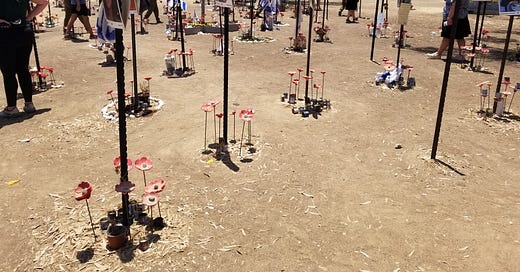When I saw the first videos of dead Jews in southern Israel, my mind immediately took me to my late father. Many a night, before I went to bed he would talk to me about the world.
“They will always want to kill Jews,” he said. “That sickness will never end.”
I’m n…
Keep reading with a 7-day free trial
Subscribe to Grumpy Combat Veteran to keep reading this post and get 7 days of free access to the full post archives.



